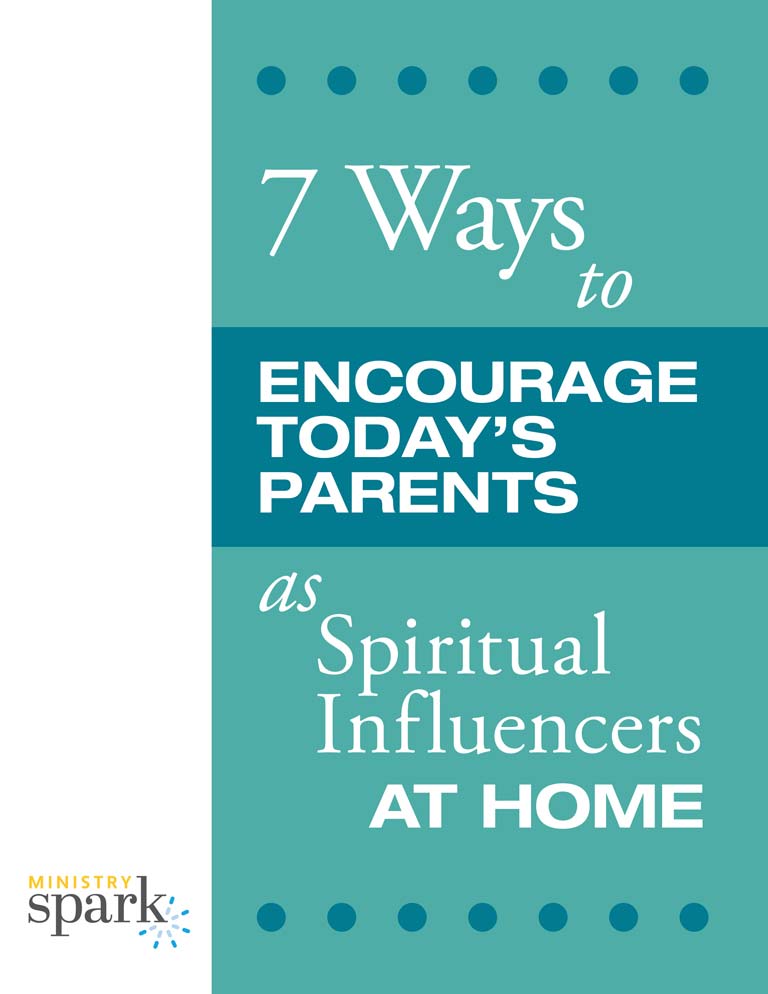Tell your children the truth, even when it is hard. They like to be told.
We are facing times like none that we have ever encountered in recent history. The routines of life—vacations, church life, sports, and even visits to loved ones—are currently prevented or rerouted. Parents are struggling to pay the bills; countless numbers of those with addictions are relapsing.
Throw in the craziness of our most recent election, and the result is deep levels of anxiety among most adults. As anxious as we may be, the level of anxiety in children currently is beyond what we have seen before. So much has to change in this tumultuous moment in which we find ourselves. I think one of those things that have to change is how we parent our children.
They Hear You

When our children were younger and asked a question that was too difficult or too painful, we often redirected the conversation or gave pat answers to calm their concerns. I would argue this has never been a good strategy, but in times like these, it is dangerous.
Children hear the 24-hour news channel of your choice. They hear the conversations of parents who are part of the coalition of the concerned. Children hear more than you think, but they also intuitively comprehend more than we would believe. To give them a pat answer does not instill confidence or hope. It does the opposite. It creates present weariness and future doubt.
Children don’t want to be pacified. They want to be told.
Lessons from Mr. Rogers
If there was anyone in my lifetime who understood children, it was Mr. Rogers. I have always found him fascinating. I think he is a better model for us as ministers to children than Disney is, but that’s a post for another day.
In one of his episodes, Mr. Rogers did what he does best—he explained. He informed children and removed the mystery so children would not be scared when going to the doctor’s office. He mentioned how his friend, a doctor, knew the importance of talking about things people might not understand. And he showed children a device that a doctor uses to look in their ears.
Mr. Rogers said, “She and I know how people like to be told things. I even wrote a song about it.”
I like to be told
When you’re going away,
When you’re going to come back,
And how long you’ll stay,
How long you will stay,
I like to be told.
I like to be told
If it’s going to hurt,
If it’s going to be hard,
If it’s not going to hurt.
I like to be told.
I like to be told.
It helps me to get ready for all those things,
All those things that are new.
I trust you more and more
Each time that I’m
Finding those things to be true.
I like to be told
‘Cause I’m trying to grow,
‘Cause I’m trying to learn
And I’m trying to know.
I like to be told.
I like to be told.
“There are many things that children wonder about, aren’t there? Well, when you are wondering about something, you can always ask the people you love about it because they were children once too.”
Shielding Isn’t Always Best
In North American culture, there is this idea that what is best for our children is to shield them from all sorrow. So, we tell them little lies as I’ll be right back when we know we are going to be gone for hours.
Sometimes, we tell them that people who have died are actually on vacation or have moved away. We tell them that getting a divorce will stop all the fighting. We tell them that the Coronavirus will be over soon.
Children want to know if it’s going to hurt or be hard. Because when we tell them the truth, we do two things.
- We let them know they can trust us.
- And we teach them how to cope with difficulty.
In 23 years of pastoring children and families, I have found that we need to do a better job preparing our children for the realities of life. Life is difficult, life is challenging, and life is beautiful. If we don’t give our children skills to face difficulty, they will only ever see the difficulties of life as they grow rather than its beauty.
When we shield our children from all sorrow, we set them up for devastation from the storms life sends their way.
The Grace in Truth
When we tell our children the truth, we can then walk them through the implications of what they have learned. We shouldn’t tell them details that are not age-appropriate, but we should err on the side of too much detail to build trust.
We do this in love; telling your children the truth doesn’t mean you blast them with the realities of life and walk away. You need to say what is true, but help point them to truth, to resources, and ultimately to Christ.
Equipping children with skills to take the next step after pain and ultimately to run to Jesus no matter what, is the goal of all truth-telling. Walking children through sorrow gives them the skills to deal with loss and sorrow.
One way I do this is by bringing my children with me to funerals and hospital visits. You rarely see children at either a funeral home or a retirement home. In failing to bring our kids to these often-difficult spaces, we are failing to give our children the tools they need to face the disappointments of aging and death’s sorrows.
In shielding children from sickness and death, we teach them to overvalue perpetual youth. Children desire to know when something will cause pain, and when life is going to be difficult.
Building Trust

Secondly, when we tell our children the truth, we build future trust. We parent in the age of Google. If you lie to your children, they will ask Google and find out. And now, with Siri, they don’t even have to be old enough to type.
The conversations you have with your children at age 3 and 8 and 10 are building a bridge to their future selves that you will need to cross when your children are 16, 18, and 21—when they have been hurt by a broken relationship when they are at a party and are afraid. Every time you tell them the truth, you place a board in the bridge of trust that will allow you access to your children in future years.
When we give our children pat answers, they will find out. When we lie to them about stuff, we train them not to trust us and redirect them to other sources to find truth.
And when you tell your children the truth, what they hear is, “I can trust you.” In a world of fake news and fact checking everything, there is nothing more valuable than trust.
Truth in Theology Matters
Finally, we need to tell our children the truth in regard to theology.
Children have questions about God. Lots of them. All you have to do is allow children to ask questions, and they will. And how we answer theological questions matters. We need to tell them the truth.
I remember prepping to teach a class of 4-year-olds at Easter when the curriculum addressed the crucifixion of Christ. Not an easy topic, to be sure. It said to tell the children that Jesus went away and then came back. This is an example of how we can give our children answers without telling the truth.
Children need us to tell the truth. Jesus lived a perfect life. We haven’t lived a perfect life. We can’t live a perfect life. So, Jesus had to die in our place. But here is the good news. He didn’t stay dead. He is alive. And because He is alive, we have hope. You can say that Jesus died for us without getting into the brutal details of Christ’s death, but it doesn’t deny the reality of our sin and His sinless sacrifice.
We have to tell the truth. They need it today, and they will need it someday. We can’t be afraid to create theological categories in their minds that children will one day need. We need to give them a faith they will grow into rather than one they will grow out of. Children don’t just want a faith that belongs to their parents.
They want to know the truth for themselves.
We Were All Children Once
We have to remember we were children once, and we liked for people to tell us the truth. As those who lead kids’ programs in the church and as parents, it is important that we don’t shield our children from the truth in our right desire to protect them from harm. We need to tell them the truth.
Because we live in a world dominated by lies, we need to teach our children what the truth sounds like so they recognize the lies their enemy will invariably tell them.
Tell your children the truth, even when it is hard.
They like to be told.

Ready to help parents create an environment for spiritual growth?

Ready to help parents create an environment for spiritual growth?













